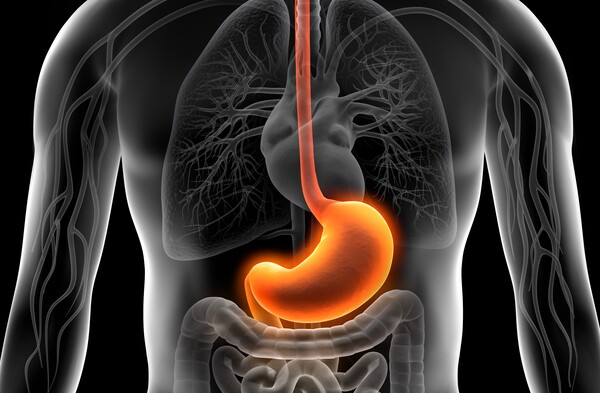Mr. A recently suffered from a tight, painful feeling in the middle of his chest, especially when he ate or drank something, and he even had a sour taste in his mouth. After visiting a doctor and undergoing an endoscopy, Mr. A was diagnosed with "gastroesophageal reflux disease (GERD)."

GERD is a common condition among people. The fatty meals and irregular habits of modern people, such as overeating, binge eating, and late-night eating due to busy work, are known to be the main risk factors that can cause reflux.
GERD is often referred to as a "developed country disease," with a prevalence rate of 30 to 40 percent in Western countries, and the prevalence rate is gradually increasing in Korea. It is a disease in which the lower esophageal sphincter, which prevents food from refluxing from the stomach, fails to function normally, causing stomach acid to reflux with food and inflammation of the esophagus.
An underactive lower esophageal sphincter and excess stomach acid cause GERD. Normally, the stomach-esophagus junction is closed, preventing the stomach contents from flowing back into the esophagus. However, when the control of this area is weakened, food or stomach acid can flow back into the esophagus, causing discomfort. If this continues, esophagitis occurs.

"The most common symptoms of GERD are heartburn, a persistent sense of foreign body in the throat, chest pain, and a dry cough," said Professor Kim Joo-seok of the Department of Gastroenterology at Daejeon Eulji Medical Center, Eulji University. "Besides, bad breath that persists despite frequent brushing and excessive burping may also be symptoms of acid reflux."
While GERD affects more men than women, more women seek medical attention for GERD. According to recent NHIS (National Health Insurance Service) data, female patients outnumbered men in all age groups.
While men have a higher incidence of GERD because they have more habits that lead to GERD, such as drinking and smoking, it is believed that women are more sensitive to symptoms than men and, therefore, visit doctors more often.
"Both men and women need to be vigilant because the number of people with GERD continues to increase, regardless of gender," Professor Kim said.
GERD should not be ignored. That’s because prolonged acid reflux can cause the epithelial cells in the esophagus to deform and turn into a lesion called Barrett's esophagus, which is at risk of progressing to dysplasia and esophageal cancer.
"In the East, the prevalence of Barrett's esophagus is not as high as in the West, so you don't need to worry too much, but you should know that the risk cannot be ruled out,” Professor Kim said. “In addition, esophageal cancer can occur if severe esophagitis persists for many years, although this is very rare.”
GERD is a difficult condition to cure.
"A complete cure is difficult because GERD requires continuous management,” Professor Kim said. “Proper maintenance treatment is the key to preventing recurrence of symptoms. It can also be controlled with dietary and lifestyle modifications and appropriate medications."
If people have GERD and feel uncomfortable despite medication, they may consider anti-reflux surgery.
"Anti-reflux surgery tightens the loose esophageal muscles by wrapping the border of the stomach and esophagus with nearby stomach tissue," Kim said. "It is a fundamental treatment that prevents the reflux of stomach contents by tightening the lower esophagus around the loose esophagus, thus blocking gastric and esophageal reflux."
GERD is sufficiently preventable. This is because Western diets and wrong lifestyles cause the majority of cases. People should avoid overeating, fatty foods, coffee, and alcohol as much as possible, and if they are overweight enough to feel pressure in their abdomen, they should go on a diet. They should also avoid sour fruit juices and carbonated drinks, which irritate the esophageal mucosa.
People should also avoid lying down immediately after eating. If they experience reflux while lying down, they can reduce the pain by keeping their upper body elevated or lying on their left side.
"If symptoms of GERD, such as heartburn, chest pain, or a sense of foreign body in the throat, persist, it is necessary to visit a hospital to consult a specialist and have regular stomach examinations for proper treatment," Professor Kim said. "Above all, it is most important to bad eating habits."
Related articles
- Boryung, HK inno.N to co-market their flagship hypertension and GERD drugs
- HK inno.N’s K-CAB chosen as outstanding technology leading Korean industry
- [Top K-Pharma Analysis ⑳] HK inno. N's growth spurred by strong performance of gastroesophageal reflux drug
- New CLDN18.2 protein offers breakthrough in stomach cancer treatment

